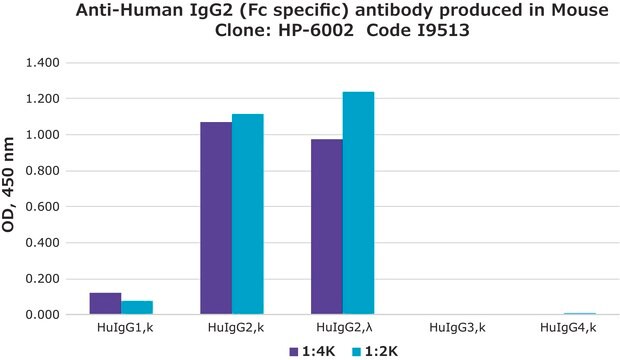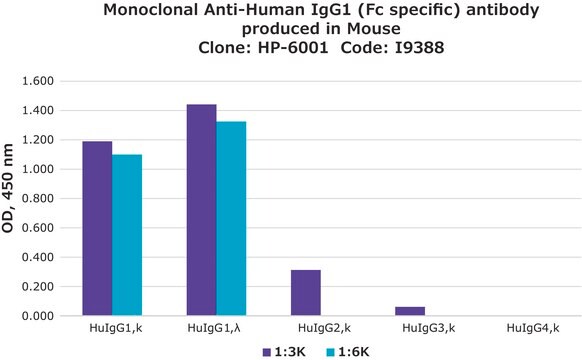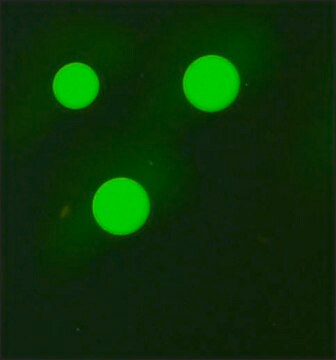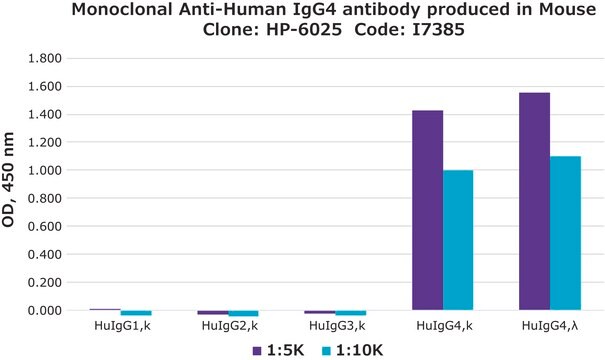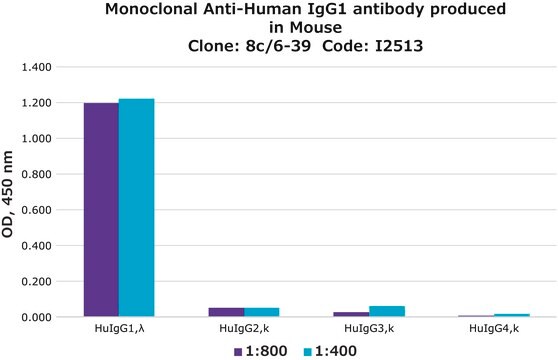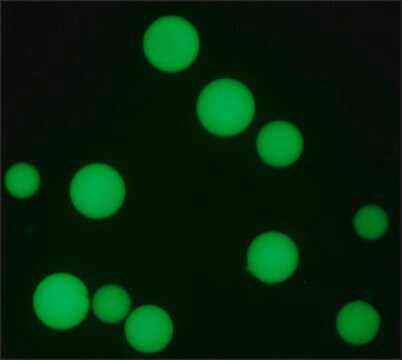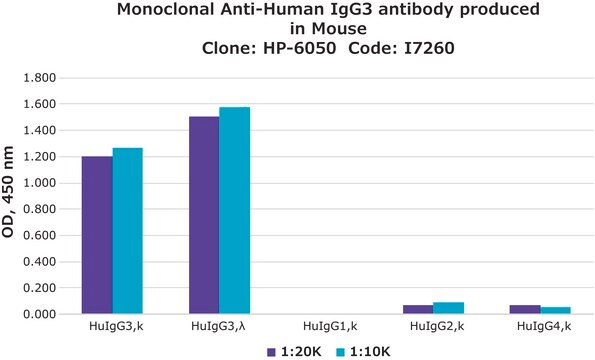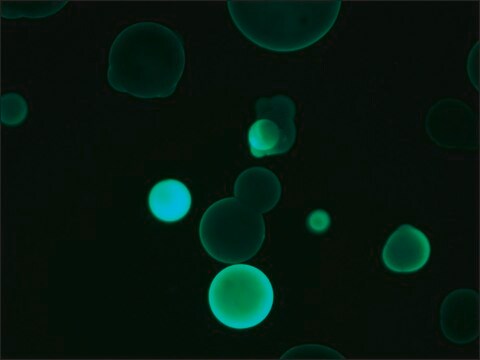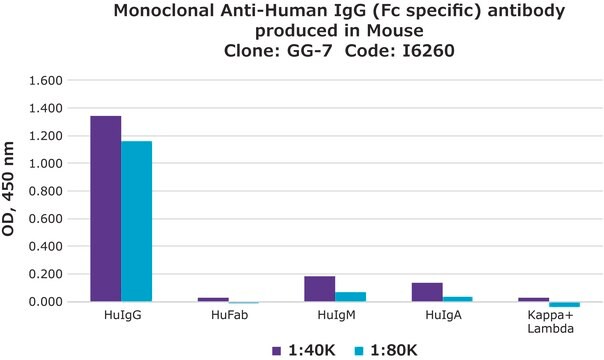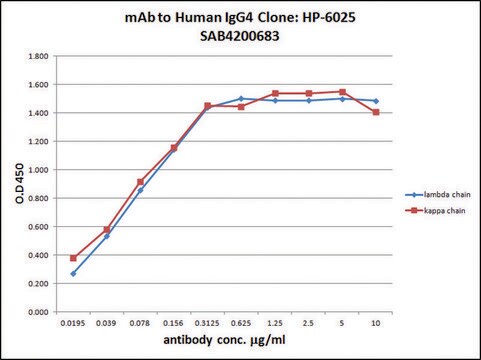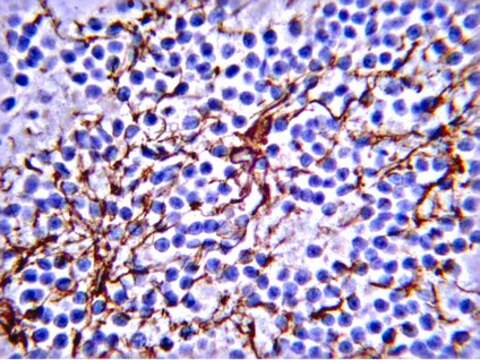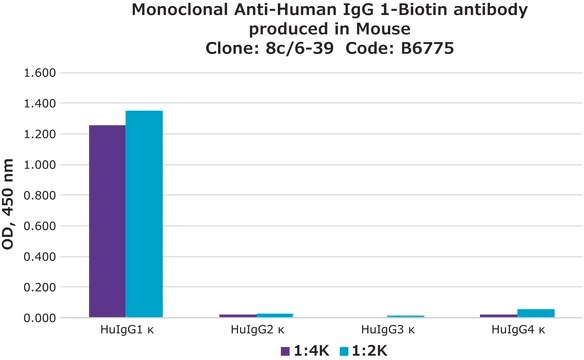Kluczowe dokumenty
I5635
Monoclonal Anti-Human IgG2 antibody produced in mouse
clone HP-6014, ascites fluid
Synonim(y):
Monoclonal Anti-Human IgG2
About This Item
Polecane produkty
pochodzenie biologiczne
mouse
białko sprzężone
unconjugated
forma przeciwciała
ascites fluid
rodzaj przeciwciała
secondary antibodies
klon
HP-6014, monoclonal
zawiera
15 mM sodium azide
metody
indirect ELISA: 1:5,000
izotyp
IgG1
Warunki transportu
dry ice
temp. przechowywania
−20°C
docelowa modyfikacja potranslacyjna
unmodified
Szukasz podobnych produktów? Odwiedź Przewodnik dotyczący porównywania produktów
Opis ogólny
Specyficzność
Zastosowanie
It may also be used:
- in imprint immunofixation
- in immunofluorometric assay
- in hemagglutination
- in hemagglutination inhibition
- in particle counting immunoassay
- in detection of cytoplasmic IgG
Działania biochem./fizjol.
Oświadczenie o zrzeczeniu się odpowiedzialności
Nie możesz znaleźć właściwego produktu?
Wypróbuj nasz Narzędzie selektora produktów.
Kod klasy składowania
10 - Combustible liquids
Klasa zagrożenia wodnego (WGK)
nwg
Temperatura zapłonu (°F)
Not applicable
Temperatura zapłonu (°C)
Not applicable
Wybierz jedną z najnowszych wersji:
Masz już ten produkt?
Dokumenty związane z niedawno zakupionymi produktami zostały zamieszczone w Bibliotece dokumentów.
Klienci oglądali również te produkty
Produkty
Antibody-based serology tests are useful in identifying subjects with an adaptive immune response to the SARS-CoV-2 virus. Anti-human immunoglobulin antibodies allow for quick and simple, yet reliable assays with easy readouts and can also be adapted for high-throughput screening.
Nasz zespół naukowców ma doświadczenie we wszystkich obszarach badań, w tym w naukach przyrodniczych, materiałoznawstwie, syntezie chemicznej, chromatografii, analityce i wielu innych dziedzinach.
Skontaktuj się z zespołem ds. pomocy technicznej